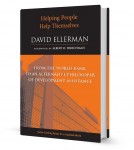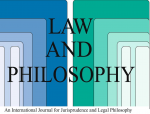These are the slides for a talk given in Munich in November 2017 at a conference on the Russian Revolution. The basic argument is that much of what John Stuart Mill said in the middle of the 19th century still sounds radical today. The reason is that Marx, Lenin, and the Russian Revolution set back the Left for a century and a half.
Talk: A Tale of Two Invalid Contracts: Coverture and Employment
These are the slides for a talk that focuses on the parallel inalienable rights arguments against the now-outlawed coverture marriage contract and the yet-to-be-outlawed employment contract.
Alexis de Tocqueville
Little-known proponents of workplace democracy:
Alexis de Tocqueville (1805-1859)
Straddler interview and video
This is the text and edited video of an interview with The Straddler in January 2016 entitled: Against the Renting of Persons.
Classical Liberalism and the Firm
This is a scan of my chapter in the new book: Commerce and Community: Ecologies of Social Cooperation, edited by Robert F. Garnett, Paul Lewis, and Lenore T. Ealy. London: Routledge, 2015.
Talk on Alienation versus Delegation at Troy University
These are the slides for a talk on Alienation versus Delegation at a conference on Philanthropy and the Economic Way of Thinking at Troy University, Troy, Alabama November 7, 2014.
Property and Contract in Economics: The Case for Economic Democracy
This book presents a modern version of the old Labor (or Natural Rights) Theory of Property and of an Inalienable Rights Theory that descends from the Reformation and Enlightenment. Together these theories re-solve the basic problem of distribution in the sense of giving a basis for the just appropriation of property and a basis for answering the question of who is to be the firm, e.g., the suppliers of share capital as in conventional capital, the government as in socialism, or the people who work in the firm as in the system of economic democracy (or labor-managed market economies).
Marxism as a Capitalist Tool
The Great Debate between capitalism and socialism is now in the dustbin of intellectual history, but Marxism still plays an important role in sustaining the misframing of the questions so that the defenders of the present employment system do not have to face the real questions that separate that system from a system of economic democracy. In that sense, Marxism has become the ultimate capitalist tool.
Inalienable Rights: A Litmus Test for Liberal Theories of Justice
This paper published in the European journal, Law and Philosophy, examines the intellectual history of inalienable rights theory, and critically examines the work of liberal philosophers of justice, John Rawls and Robert Nozick, from that perspective.






